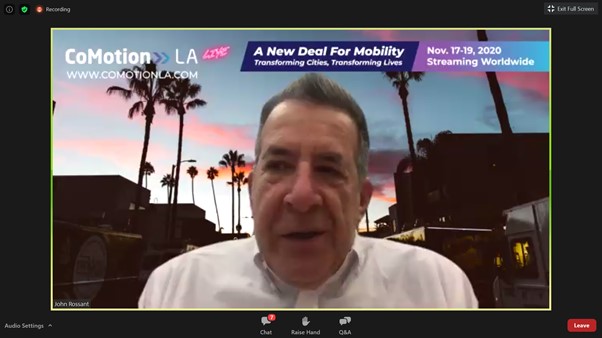
The Global Partnership for Informal Transportation (GPIT) has been launched to help develop and decarbonise shared transit in emerging economies.
These transit networks are not official public transport but nonetheless help literally millions of commuters get to work, giving them the basic freedom of movement which allows them to improve their economic situation.
John Rossant, founder of NewCities Foundation and CEO of CoMotion, made the GPIT announcement at this week's CoMotion LA Live 2020 virtual event, when talking about the importance of mobility in the urban centres of the southern hemisphere, the Global South.
“The majority of the world’s urban citizens live in cities of the south,” he said.
GPIT will aim to ensure the benefits that accrue from developments in sustainable mobility apply to them too, he added.
“It will focus on ways to both decarbonise these informal networks and to capitalise on new technologies which can truly improve these networks,” Rossant explained.
GPIT includes partners such as WhereIsMyTransport, which is already mapping the networks.
“We believe informal transportation systems—the tuktuks, matatus, jeepneys, bodabodas, ojeks, auto rickshaws, peseros and colectivos of the rapidly growing cities of the Global South—can be powerful engines for economic mobility and for creating more sustainable and inclusive cities,” said Benjamin de la Peña, GPIT executive director,
The new organisation plans to establish a database to continue this work, while also bringing together leading players, technology entrepreneurs, researchers and innovators.
Other mobility partners include NewCities Foundation, Agile City Partners, CoMotion, United Nations Development Programme and Transforming Urban Mobility Initiative.











